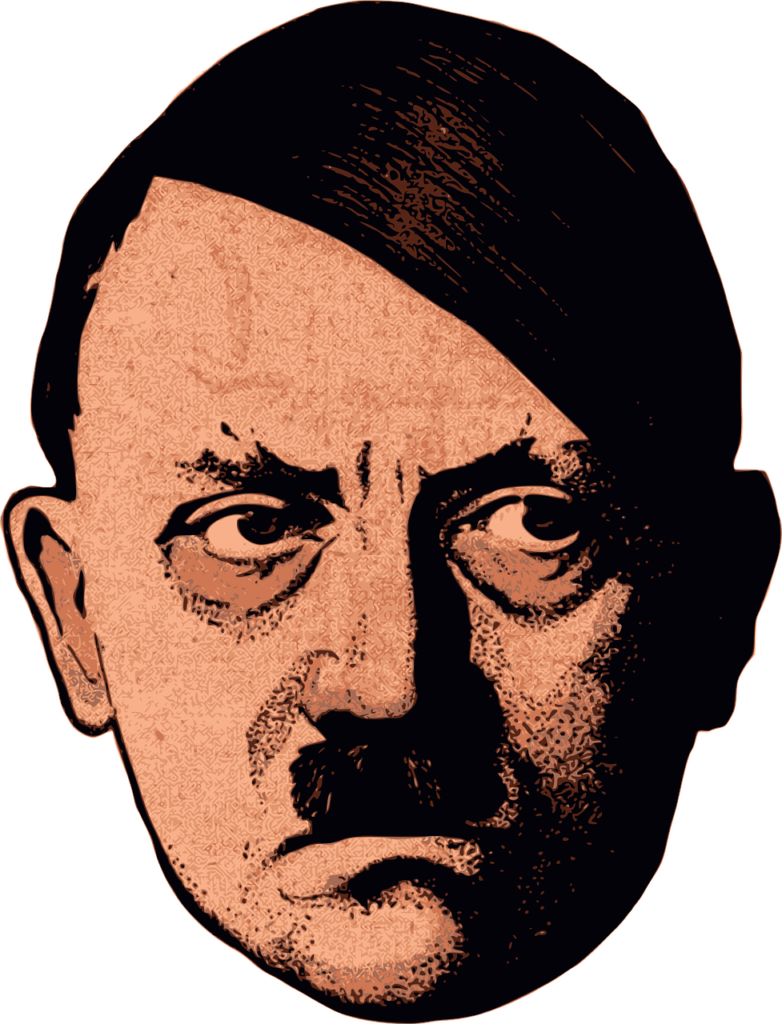 On his way to the political Olympus, Hitler easily won support of the dispirited nation because he offered a very simple excuse to the German defeat in WW I and promised to drop the humiliating conditions of the Treaty of Versailles. His fanatical Nationalism in combination with pathological Anti-Communism and anti-Semitism looked attractive for depressed and disoriented Germans.
On his way to the political Olympus, Hitler easily won support of the dispirited nation because he offered a very simple excuse to the German defeat in WW I and promised to drop the humiliating conditions of the Treaty of Versailles. His fanatical Nationalism in combination with pathological Anti-Communism and anti-Semitism looked attractive for depressed and disoriented Germans.
Adolf Hitler was born in 1889 in a small Austrian town of Braunau near the Bavarian border. His father was an unimportant customs official. At his high school, Hitler had problems with discipline and dropped studies at the age of 16. He came to Vienna dreaming to become a painter but was not admitted to the School of Painting at the Academy of Fine Arts. At the outbreak of the First World War Hitler volunteered to the German army moved by fervent Nationalism. He fought at the Western front, was decorated, wounded and gassed. The German defeat of 1918 was a bitter shock for him – he was unable to recognize that his nation proved militarily weaker than its enemies. As many other patriots Hitler explained German collapse by Jewish and Communist betrayal. Deeply outraged by the Treaty of Versailles he dreamed of revenge and hated the weak Weimar Republic. His feelings were shared by many German WW I veterans potentially representing an important political force and lacking only a charismatic leader to unite.
After the war, Hitler settled in Munich and joined the small local German Workers’ Party, becoming responsible for propaganda. At the regular Party meetings he pronounced passionate speeches blaming Jews and Communists for German defeat and calling for the overthrow of the Weimar Republic and the rejection of the Treaty of Versailles terms. Hitler’s popularity quickly grew and in 1921 he became the leader of the renamed National Socialist German Workers’ Party (NSDAP) nicknamed Nazi Party. Nazis formed paramilitary “storm troops” (SA) headed by Ernst Rohm and with their support staged in 1923 the “Beer Hall Putsch” easily crushed by the police force. Hitler was sentenced for five years in prison but was released after only one year of detention. In prison he wrote his book “My Struggle” permeated with pathological anti-Semitism and revanchist appeals to conquer “inferior” nations surrounding Germany. This book published in 1925 in combination with the reputation of a militant nationalist made Hitler famous all over the country.
The popularity of Nazi Party gradually grew – in 1928, it counted 108,000 members and obtained 3 percent of votes at the national elections. The Depression of 1929 considerably affected the German economy and led to political crisis of the Weimar Republic. At the elections of 1930 Nazis gained 107 seats in Reichstag becoming the second largest party in the parliament. At the same time moderate and centrist parties were losing popular support. Economic hardships and political uncertainty made German population much more receptive to the radical ideas and irresponsible promises of Hitler. By 1932, the NSDAP had already more than 800,000 members and won 196 seats in Reichstag. But in parallel with Nazis’ success considerably increased the influence of German Communists having 100 parliamentary seats. Prominent industrialists and right-wing politicians believing that NSDAP is the only force capable to stop Communists’ advance asked the elderly president von Hindenburg to appoint Hitler as chancellor. And on January 30, 1933 Adolf Hitler became the head of German government. The new chancellor did not disappoint the ruling classes immediately starting the campaign of repressions against trade unions, Socialists, Communists and Jews.
In such a way, Hitler was selected by the German ruling elite as the best alternative to Communists but his new order based on racism, anti-Semitism and military aggression led the nation the catastrophic defeat of 1945.